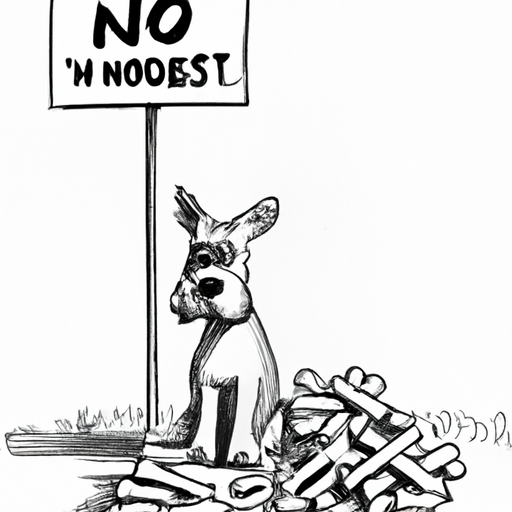Contents
- Introduction
- The Dangers of Chicken Bones
- The Science Behind It
- What to Do If Your Dog Has Swallowed a Chicken Bone
- Preventive Measures
- FAQs
Introduction
You’ve just finished a delicious chicken dinner and your dog is giving you that look. You know the one — the pleading eyes, the wagging tail, the undeniably adorable tilt of their head. They’re begging for a taste, but you’ve always been told that you should never give chicken bones to dogs. Why is that? Let’s dive into the reasons.
The Dangers of Chicken Bones
Chicken bones pose a particularly high risk to dogs for a number of reasons:
-
Choking Hazard: Chicken bones, especially when cooked, can easily splinter into sharp fragments. These fragments can cause your dog to choke.
-
Internal Injuries: Sharp bone fragments can also pierce your dog’s stomach or intestines. This can lead to serious complications like peritonitis, a life-threatening condition that requires immediate veterinary attention.
-
Blockages: Even if the bones don’t splinter, they can still cause blockages in your dog’s digestive tract.
The Science Behind It
But why do chicken bones splinter so easily? It all comes down to the composition of the bone itself.
Chicken bones are lighter and more porous than the heavy, dense bones of larger animals like cows or pigs. This makes them more susceptible to breaking and splintering, especially after they’ve been cooked.
| Bone Type | Composition | Risk Level |
|---|---|---|
| Chicken | Light and porous | High |
| Cow | Heavy and dense | Low |
| Pig | Heavy and dense | Low |
What to Do If Your Dog Has Swallowed a Chicken Bone
If your dog has swallowed a chicken bone, don’t panic. Here’s what you should do:
-
Check for Symptoms: Look for signs of distress such as choking, gagging, excessive drooling, vomiting, loss of appetite, or lethargy.
-
Contact Your Vet: If your dog shows any of these symptoms, contact your vet immediately.
-
Monitor Your Dog: Even if your dog seems fine, keep a close eye on them for the next few days. Some symptoms might not appear immediately.
Preventive Measures
Prevention is always better than cure. Here are some tips to keep your dog safe:
- Never leave chicken bones within your dog’s reach.
- Dispose of chicken bones in a secure trash can.
- If you feed your dog a raw diet, opt for larger, safer bone options like beef or pork.
FAQs
Q: Can dogs eat any type of bones?
A: Some bones are safer than others. Larger, uncooked bones from animals like cows or pigs are generally safer.
Q: What should I do if my dog has swallowed a chicken bone?
A: If your dog shows signs of distress, contact your vet immediately. Otherwise, monitor your dog closely for the next few days.
Q: How can I prevent my dog from getting to chicken bones?
A: Keep chicken bones out of reach, and dispose of them in a secure trash can.



